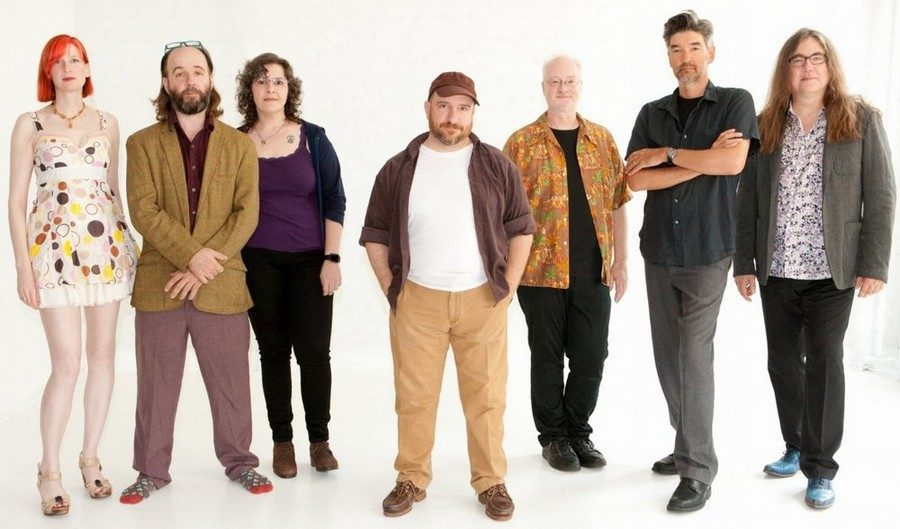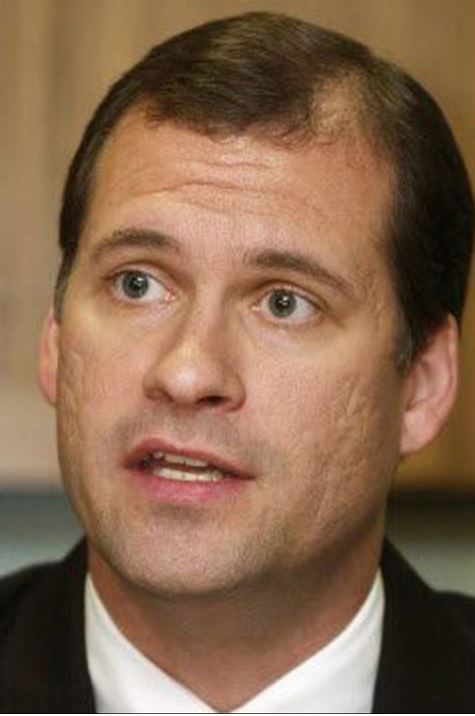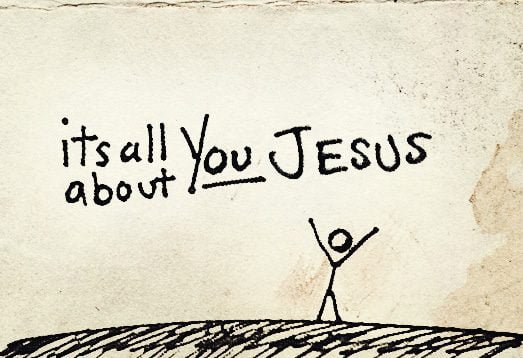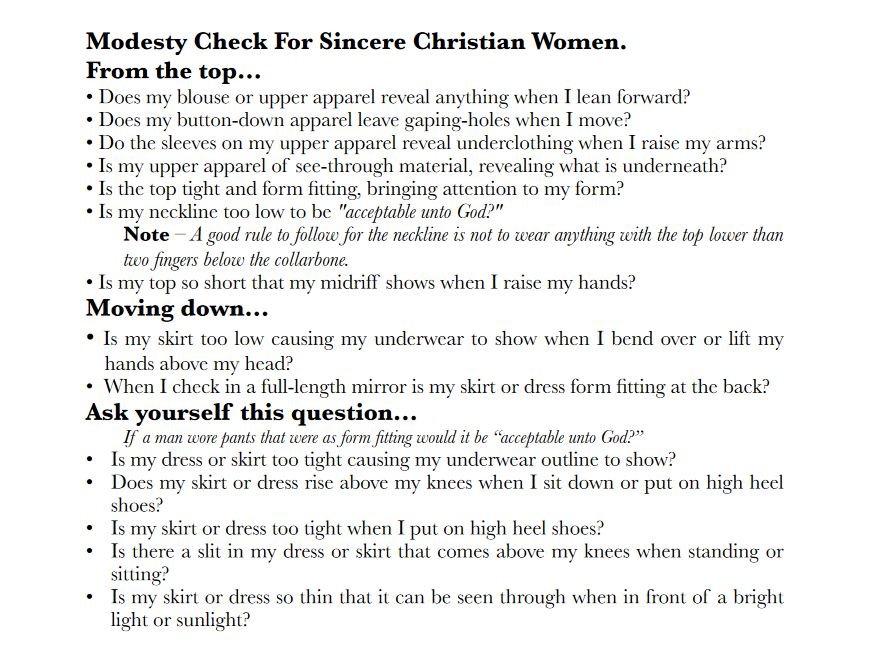
Snark and R-rated humor ahead. You have been warned!
Those of us raised in Evangelical churches often heard our pastors speak of unsaved people having a God-shaped hole in their lives. Where this hole was exactly never was explained. It couldn’t have been in the heart. Surgeons can repair holes in hearts — no God needed. Perhaps, this hole was in the soul — another thing pastors never could explain. Where, exactly, does the soul reside? How can any of us know we have a soul, or a spirit, for that matter? And I have to ask at this point, if unsaved people have a God-shaped hole, does that make them HOLY?
Regardless of wherever said hole is located, Evangelical pastors assure sinners that it exists, and that God, on purpose, created this hole in every human being. In other words, all of us were born with a birth defect. Supposedly, God created this hole so all of us would one day want and need him. Well, except for the non-elect — according to Calvinists. They go through life with holes that can never be filled by God because God put a steel plate over their holes. (I am restraining myself here. All this hole talk makes me want to talk about sex.) Arminians, on the other hand, believe all humans are born into this world with a God-shaped hole in their lives. But, even for Jacob Arminus’ clan, if sinners repeatedly reject God’s plan for hole-filling, God will pour cement into their hole — giving them a hardened heart. Having committed the unpardonable sin, sinners with cement-filled holes can never, ever be saved.
The Bible, of course, mentions nothing about unsaved people having a God-shaped hole in their lives. That unbelievers have one is based on inference; a common way that Evangelicals use to construct new doctrines. Take a verse here, a verse there, and another verse over here, and BOOM! there it is. Surely you see it, right? Evangelicals often use inference to prove various points of their eschatological beliefs. For example, the Bible does not mention the rapture — the moment when Jesus will come again (no sex joke here either) in the clouds and gather up all the Evangelicals to take them home to Heaven. You will search in vain for a verse, any verse, that says Jesus will soon return to earth’s atmosphere to catch away the saved. If you start pressing Evangelicals on some their beliefs you will find that their interpretations are based on presuppositions. We believe that the rapture of the church is imminent, says Pastor I.M. Fullashit, and this and that verse — twisted, contorted, and pressed — proves it! So it is with God-shaped holes.
The implication of the God-shaped hole is this: unsaved people live empty, hopeless, desperate, unfilled lives lacking in meaning, purpose, and direction. Without God filling the pothole he created in your life, you are vile sinner who hates God. My wife and I went to the hospital today to visit grandchild number twelve. Ezra was born seven weeks early so he is in the Neonatal Intensive Care Unit. Here was this precious, wonderful little boy. I shed a tear as I looked at him sleeping, wondering what he would one day become. I wondered about what kind of world he is being born into now that Donald Trump is trying to burn the United States to the ground. So many questions Grandpa has about his future, but for today, he’s my grandson, my daughter’s first child, and I love him.
If I were still an Evangelical, perhaps I would have uttered a prayer, asking God to quickly fill my wicked, vile grandson’s life with the presence of the Holy Spirit. You see, Evangelicals believe that infants, too, have a God-shaped hole. King David, a murderous, adulterous man who supposedly had a heart for God, had this to say about himself: Behold, I was shapen in iniquity; and in sin did my mother conceive me. (Psalm 51:5) Evangelicals extrapolate from this verse the belief that ALL children are conceived in sin and shapen in iniquity (the doctrine of original sin). Of course, this is a conclusion without evidence. All that can be said here is that David thought he was wicked from birth. Press Evangelicals on the notion of original sin and you will quickly find that this doctrine is built upon a rotting foundation; that this doctrine requires playing Bible gymnastics to affirm its teaching. If you want a good illustration of how this game is played, please read John Piper’s post titled, What is the Biblical Evidence for Original Sin? Now, without the doctrine of original sin, there’s no need for human redemption and salvation. Evangelicals need the human herd divided into two groups — saved and lost — for their salvation scheme to work. Without this division, why, we would all just be humans, each capable of good and bad behavior. If there’s no sin, there’s no need for Jesus’ death on the cross and his resurrection from the dead.
Piper sums up his nonsensical defense of infants being born hellions with these two points:
- Infants die, therefore they are not innocent.
- If humanity is not born in sin, wouldn’t we expect there to be some people who have “beaten the odds” and never sinned?
Makes perfect sense to Evangelicals. But, to those of us outside of the bubble, we know that infants are fine just as they are; that what they need is LOVE, and not salvation. What, exactly, has my grandson done to need redemption? So far, in the first week of life, all he has done is sleep, eat, occasionally cry, poop, and pee. Fortunately, his parents will not be taking him to a Christian indoctrination center any time soon. I had to stop attending religious rituals for my newly-born grandchildren after almost having a stroke when a priest said my granddaughter was possessed by the Devil and must be exorcised — which he promptly proceeded to do. Quite frankly, I wanted to hold that priest’s head in the baptismal font water for about five minutes. There, another demon exorcised!
The only hole Christians have is in their minds; a hole made in their intellect by religion. I am not saying that Evangelicals are stupid or ignorant, though more than a few comments left on this blog over the years might lead me to conclude otherwise. What I am saying is that Evangelical beliefs cripple the minds of believers; that their minds are shut off from certain paths of inquiry. Instead of following the path wherever it leads, Evangelicals, much like the Israelites wandering in the desert for forty years, intellectually wander within what they believe is a God-approved box. Their pastors warn them if they dare to peek over the top of the box or wander from its confines that they risk falling into heresy or sin; that only within the box will their soul and life be safe and secure.
Evangelicals have what I call the Christian Ghetto®, a world where Evangelical versions of everything exist. Evangelical congregants are encouraged to only read Christian books, attend Christian movies, and watch Christian TV. I remember one congregant whom I tried my darnedest to convince to read the Calvinistic books I was recommending to members, She would take the books home, but never read them. One day, I stopped by to visit her. Usually, congregants would hide anything that would lead me to conclude that they were not following the commands, edicts, rules, laws, and regulations of Pastor Bruce, uh I mean God. On this particular day, this dear woman forgot to hide the reason she wasn’t interested in reading the latest, greatest eighteenth-century book by a dried prune of a Puritan preacher. On her living room table sat a large stack of true-crime books. I looked at the books, picked up one of them, briefly leafed through it, and said nothing. Back then, I could do passive-aggressive quite well. Point made, preacher, point made. You see, she wanted to roam outside of the box. This woman found theology books boring, whereas true-crime books were filled with all sorts of exciting stories.
As an Evangelical pastor, part of my duty was to make sure people stayed within the confines of the box. People who dared to leave the box often did not return, putting their eternal destinies at risk. The Bible says in 1 John 2:19:
They went out from us, but they were not of us; for if they had been of us, they would no doubt have continued with us: but they went out, that they might be made manifest that they were not all of us.
Let me translate this from the original Hungarian:
Those people who left our church were not True Christians®. Had they been True Christians® they would have kept their asses in the pew and continued to listen to Pastor Bruce’s Holy Spirit-filled sermons, obeying his every word. But, they left, and this is proof that they never were really True Christians®.
Evangelicalism is all about obedience and conformity. Independent thinking is discouraged, and is often taken as a sign of a person who is not right with God. Congregants are expected to believe, by faith, that whatever the Bible says is true (inspiration, inerrancy, infallibility). While doubts and questions are tolerated to a small degree, True Christians® are expected to eventually, after being properly schooled and corrected, toe the line. And if they can’t or won’t, these rebellious church members are expected to leave the church. Of course, by leaving they prove they weren’t True Christians®, or at the very least prove that the pastor was right to have serious doubts about their salvation.
Fortunately, an increasing number of Evangelicals (and Christians of all stripes) are propping up a ladder on the inside wall of the box and escaping into the night. Once free, these escapees wander the wild, woolly, dangerous streets of the world. (See What I Found When I Left the Box.) No longer bound by church doctrine, orthodoxy, and the like, these people are free to follow the path of life wherever it leads. Few ever return to the box. Most of them find homes in progressive/liberal Christian churches, Unitarian Universalist churches, or embrace non-Christian beliefs. Some of them say they are spiritual and have no interest in organized religion. An increasing number of these runners become agnostics or atheists. You see, once you are truly free, life becomes all about the journey and not the destination. Evangelicals fixate on right beliefs and practice because where they spend eternity depends on them believing and practicing the right things. Believe the wrong things and Hell awaits. Believe the right things — by faith — and put those beliefs into practice (good works), and a room in God’s Trump Hotel awaits you after death. Life, then, is just preparation for eternity (Amos 3:3). Life is all about getting ready to meet God and move in to the room Jesus has spent thousands of years preparing for you.
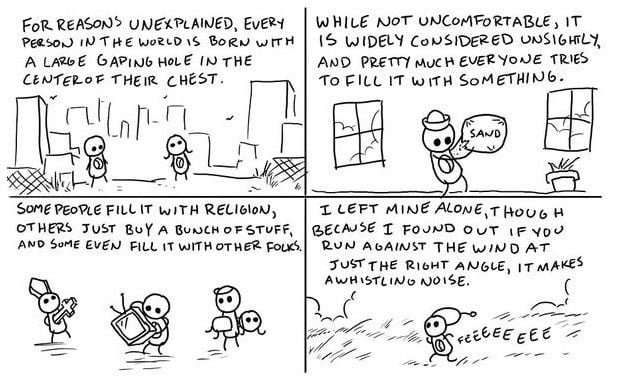
Once free from the pernicious, intellect-killing, mind-rotting grip of Evangelical dogma, people feel a great sense of freedom, yet, at the same time, they, once again, sense a hole in their lives. This hole, however, is real. It is a knowledge-filled hole, a hole located in the mind that only can be filled with intellectual inquiry. Most former Evangelicals lament the fact that they had so many bat-shit crazy beliefs. Who among us hasn’t said, I can’t believe that believed THAT! I see all those hands! For those of us who were Evangelicals for years, we realize that we burned a lot of brain cells (and daylight) searching after “truths” that were mirages; “truths” that were passed down from generation to generation by the tribal elders of our blood cult; “truths” that have no grounding in facts and evidence. Once we reach this point, there’s often a mind-flushing of sorts that takes place. For some of us, we had to push the handle numerous times before our minds were free of a lifetime of detritus. Once cleansed of Biblical “truth,” former Evangelicals realize that there’s a lot they don’t know about the world. Spend your life having truth defined by the Bible and God-ordained men alone, and you are going to miss out on a lot of important stuff.
Most Evangelicals are creationists. No need to study science, right? The Bible says, in the Beginning GOD CREATED the heavens and earth. What else is there to know? Come to find out, a hell of a lot of stuff. I have spent the last decade trying to educate myself in matters of biology, archeology, geology, and astronomy, to name a few. The same could be said about history and the social sciences. So much to learn, but here’s the problem: I am sixty-one years old and in failing health. I do what I can, but I am so grateful for the fact that my children and grandchildren are free from the cult; that they value intellectual inquiry; that they are skeptical — and often humored — of claims made by Christians. It thrills me down to the deeps of my painful feet that my grandchildren are voracious readers; that they are not held captive by the Bible or Christian books. Freedom, for them, yea, for all of us comes one book at a time.
The impetus for this post came from an email I received from a friend of mine. She told me of a discussion she was having with a sibling over the plurality of Gods in the Old Testament — specifically the Hebrew words Yahweh and Elohim. Evangelicals, of course, believe that these words are the same name for their God. There is ONE God, Evangelicals say, yet they worship a triune God — Father, Son, and Holy Ghost. Well, God is three in one, Christians say. Three, yet one. Makes perfect sense, right? Anyhow, my friend, as I do, thinks that the Old Testament Gods were plural in number. A natural reading of the text, without pushing it through a Trinitarian sieve, reveals that Christianity rests on a polytheistic foundation. My friend’s sibling would have none of her “worldly” thoughts, reminding her that pride was man’s first sin and that pridefully attaining “worldly” knowledge is futile. Her sibling told her that he was focused on his Lord and Savior Jesus Christ who is his all-in-all; the only person who can fill the God-shaped hole in his heart.
My friend said to me, “His God-shaped hole is filled with God, but I don’t have a God-shaped hole; I have a knowledge-shaped hole and I am having fun filling it.” She sure hit the proverbial nail on the head! With no thoughts or worries about God or eternity, we are free to read and study that which interests us. The goal is to be a more informed person today than I was yesterday. I will never become as competent in matters of science as younger skeptics will, but I can, by the grace of my almighty intellect, know more about how the world works today than I knew as a card-carrying member of the Ken Ham Were You There? Club®. Much like my friend, I intend to fill the hole in my life with knowledge. I invite Evangelicals to dare to scale the walls of the box. Freedom awaits, as does a library card.
About Bruce Gerencser
Bruce Gerencser, 61, lives in rural Northwest Ohio with his wife of 40 years. He and his wife have six grown children and twelve grandchildren. Bruce pastored Evangelical churches for twenty-five years in Ohio, Texas, and Michigan. Bruce left the ministry in 2005, and in 2008 he left Christianity. Bruce is now a humanist and an atheist. For more information about Bruce, please read the About page.
Bruce is a local photography business owner, operating Defiance County Photo out of his home. If you live in Northwest Ohio and would like to hire Bruce, please email him.
Thank you for reading this post. Please share your thoughts in the comment section. If you are a first-time commenter, please read the commenting policy before wowing readers with your words. All first-time comments are moderated. If you would like to contact Bruce directly, please use the contact form to do so.
Donations are always appreciated. Donations on a monthly basis can be made through Patreon. One-time donations can be made through PayPal.

